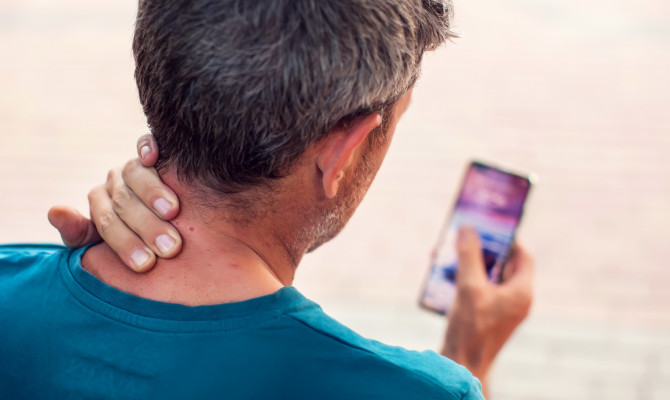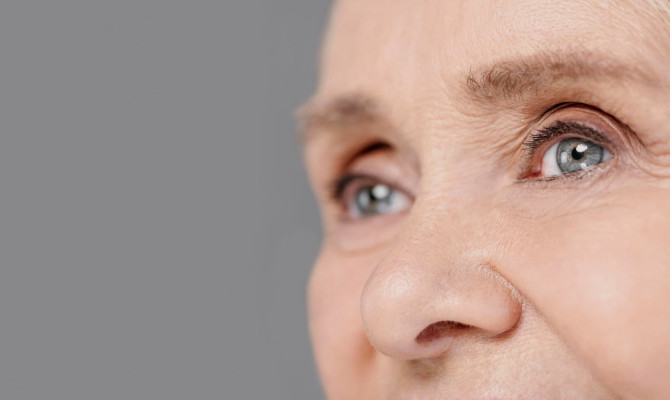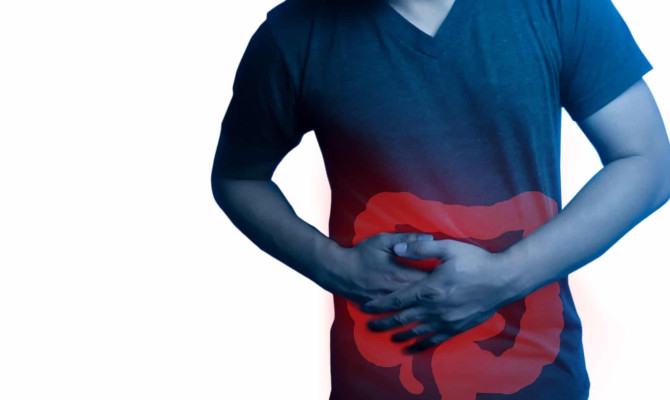Hypoglycemia : Symptoms, Causes, and Management

- Hypoglycemia
- 27 Sep 2023
Overview
What is hypoglycemia?
When the body’s glucose level falls below a specific level, a medical condition known as hypoglycemia, also referred to as low blood glucose or low blood sugar, takes place. Low blood sugar levels, or those below 70 mg/dL, make it difficult for the body’s cells and organs that use glucose as a source of energy to function at their best. If this condition develops, action must be taken right away because, if untreated, it can lead to serious complications.1Overview| Researched based study from Endocrine.org

Types
What are the different types of hypoglycemia?
Hypoglycemia exists in three stages, mild, moderate, and severe hypoglycemia. Some of the most common types of hypoglycemia are as follows:
Reactive Hypoglycemia
- People who are suffering from diabetes or insulin resistance, are found to suffer from reactive hypoglycemia, in which within a few hours of intake of food body tend to produce excess insulin which causes low blood glucose level in the body.1Types| Researched based study from Endocrine.org
Fasting Hypoglycemia
- People who do starvation by practicing fasting for extended durations or due to any other medical illness, causes Fasting Hypoglycemia.
Drug-Induced Hypoglycemia
- This type of hypoglycemia mostly occurs in people who are prescribed medicines to treat diabetes, often leaving a side effect on the body and causing hypoglycemia. While in some cases, medicines that are used to treat different diseases can cause hypoglycemia.
Idiopathic Hypoglycemia
- This is one such type of hypoglycemia, that is extremely dangerous for a person. It is so because the person is completely unaware of the disease since the body doesn’t produce any symptoms.
Hypoglycemia associated with critical illness
- Hypoglycemia can occur in people who are critically ill or who have severe infections, which can affect the body’s ability to regulate glucose levels.
Causes
What are the major causes of hypoglycemia?
There are many possible causes of hypoglycemia. Here are some of the most common:
Diabetes medications
- Doctors usually prescribe certain medications like, insulin, sulfonylureas, and meglitinides to diabetic patients which can sometimes cause hypoglycemia as a side effect.
Skipping meals or fasting
- Food maintains the blood sugar levels of the body. But people sometimes eat later than usual and sometimes skip the meal for extended periods which affects their health, and can also cause hypoglycemia 2causes| Researched based study from Clevelandclinic.org
Alcohol consumption
- Liver is responsible for metabolizing and producing blood glucose, drinking alcohol interferes with its ability to regulate blood sugar, hence resulting in decreased glucose production and subsequent hypoglycemia, or, alcohol consumption sometimes stimulates the pancreas which secretes insulin and causes a drop in blood sugar levels.
Medical conditions
- Hypoglycemia can be brought on by conditions like liver or kidney disease, tumors, or hormone deficiencies.3Causes| Researched based study from Mayoclinic.org
Insulin overproduction
- Insulinomas, or insulin-producing tumors, can cause the body to overproduce insulin, which can result in hypoglycemia.
Excessive exercise
- During an intense physical activity or exercise, muscles require more energy which is primarily provided by glucose in the blood which leads to increased glucose uptake by the muscles and a decrease in blood glucose levels. People with diabetes conditions affect glucose regulation, resulting in hypoglycemia.
Malnutrition
- Sometimes the body doesn’t have enough nutrients to maintain blood sugar levels and this deficiency of essential nutrients, can result in hypoglycemia.
Rare genetic disorders
- Rare genetic conditions like congenital hyperinsulinism and glycogen storage disease, affect the body’s ability to produce or store glucose and result in hypoglycemia.
Symptoms
What are the primary signs and symptoms of hypoglycemia?
Symptoms of hypoglycemia may develop suddenly and can be quite uncomfortable or distressing. In some cases, people with hypoglycemia may not experience any symptoms. However, the following are some common symptoms of hypoglycemia:
Instability
- In the case of Exercise-induced Hypoglycemia, when the sugar levels drop, the body releases adrenaline and cortisol hormones, which make a person unstable, shaky, and weak.
Sweating
- One may experience sweating, even in cool temperatures, it happens because, the body tries to compensate by releasing several hormones, which certainly triggers the nervous system, leading to sweating.4Symptoms| Researched based study from Kidshealth.org
Rapid heartbeat
- A rapid heartbeat can result from the body’s release of various hormones in response to hypoglycemia which can lead to feelings of nervousness and anxiety, as well as palpitations, which are common symptoms.4Symptoms| Researched based study from Kidshealth.org
Headache
- One may suffer from headaches since the supply of glucose delivery to the brain begins to reduce, which makes it a sign of hypoglycemia.
Fatigue
- A drop in the blood glucose levels, causes a Feeling of tiredness or fatigue, even after getting enough rest, which makes it a symptom of hypoglycemia.
Confusion
- Feeling confused, disoriented, or having trouble concentrating are common symptoms of hypoglycemia.4Symptoms| Researched based study from Kidshealth.org
Hunger
- Glucose is the primary source of energy for the brain, and when its levels drop, the body signals a feeling of hunger and a need to eat frequently. This is a common symptom of hypoglycemia.
Blurry or double vision
- Due to the drop in glucose levels, the limited supply of it to the brain causes the eye muscles to weaken which affects the vision and make it difficult to focus.4Symptoms| Researched based study from Kidshealth.org
Irritability
- Hypoglycemia can cause irritability or mood changes.
Seizures
- In severe cases of hypoglycemia, seizures or convulsions may occur due to the overproduction of neurotransmitters.
Loss of consciousness
- Hypoglycemia can cause loss of consciousness or coma in very severe cases, because of lack of oxygen and other important nutrients. In such a situation, the person may faint or pass out.4Symptoms| Researched based study from Kidshealth.org
Diagnosis
Diagnosing hypoglycemia
Diagnosis of hypoglycemia involves several steps. Here are some of the typical diagnostic steps:
- The healthcare professional will ask the patient about symptoms, any past medical history, or medications one is taking that are affecting blood sugar levels.
- After the information gathering, the doctor will look for physical signs or symptoms of hypoglycemia, such as sweating, tremors, or confusion.
- The doctor will take tests to measure blood sugar levels using a glucose meter. If the doctor finds the blood sugar level below 70 mg/dL (3.9 mmol/L), the doctor may recommend some additional tests in that scenario.
- A doctor may order a fasting test, glucose tolerance test, or insulin level test if the cause of the hypoglycemia is unknown.
- The doctor will work with you to identify the underlying cause of hypoglycemia and create an appropriate treatment plan once it has been diagnosed.
Risk
Who are at risk?
Anyone can develop hypoglycemia, but certain people are at higher risk than others. Here are some of the factors that can increase the risk of hypoglycemia:
- People who are diagnosed with Type 1 and Type 2 diabetes are more likely to develop the risk of hypoglycemia.5Risk| Researched based study from Niddk.nih.gov
- People who take medications and prescribed drugs sometimes leaves an extreme side effect on the body, which considerably affects the blood glucose levels, and increase the risk of the development of hypoglycemia in such people.
- Alcohol consumption is injurious to health, and people who still consume it, cause a disbalance in glucose levels, since alcohol interferes with the liver, increasing the risk of hypoglycemia.5Risk| Researched based study from Niddk.nih.gov
- People who practice intense or prolonged exercise, cause depletion of glucose stores in the body, leading to hypoglycemia.
- Certain medical disorders and medical conditions are also responsible factors that cause the risk of hypoglycemia in people. Sometimes, it’s often related to family history.
- As people age, their body’s ability to maintain a normal blood glucose level decreases and makes them more prone to develop hypoglycemia, making people age 65 or more susceptible.5Risk| Researched based study from Niddk.nih.gov
Treatment
What are the effective management and treatment options available for hypoglycemia?
Working closely with your healthcare provider will help you create a specialized hypoglycemia treatment and management strategy. The underlying cause and the degree of the condition determine how to treat and manage hypoglycemia. Here are some general methods for controlling hypoglycemia.
Eat or drink something with carbohydrates
- If one is experiencing mild hypoglycemia, eating or drinking something with carbohydrates will help. Since carbohydrates are the main source of energy and consumption of fruit juices will help raise glucose levels.
Adjust diabetes medications or insulin doses
- If one is a patient of diabetes, and taking certain medications like insulin which directly affects glucose levels, under the guidance of your doctor ask for the adjustment in insulin doses that will help prevent hypoglycemia.
Avoid Alcohol
- Alcohol consumption seriously affects the body and it should be avoided.
Avoid exercise
- Don’t practice intense workout or exercise for a prolonged duration, since exercise not only burns calories but also burn blood glucose.6Treatment| Researched based study from Hopkinsmedicine.org Therefore, making it a potential factor for the development of hypoglycemia.
Medical treatment
- In extreme cases of hypoglycemia, medical treatment may be necessary, such as intravenous glucose or glucagon injections.
Prevention
What are the preventive measures for hypoglycemia?
Managing glucose through a combination of diet, exercise, and medication is necessary to prevent hypoglycemia. The following techniques could aid in preventing hypoglycemia:
The 15-15 rule
- Regular meals and snacks along with a healthy, balanced diet can help to keep blood sugar levels stable. Following a 15-15 rule will help in such cases when you find your glucose level is down. In this, the patient has to consume a few portions of carbs that are equivalent to 15 grams and check the sugar level after 15 minutes and continue this process until glucose reaches the normal level of 70 mg/dL.7Prevention| Researched based study from Diabetes.org
Monitoring
- Monitoring your blood sugar levels regularly, as advised by your healthcare provider, can help you spot and treat hypoglycemia early.
Avoid stress
- Because stress can affect blood sugar levels, finding coping mechanisms can help to avoid hypoglycemia. Some of these include exercise, meditation, or relaxation techniques.7Prevention| Researched based study from Diabetes.org
Wearables
- If you’ve experienced hypoglycemia in the past, wearing a medical alert bracelet can help ensure that you get help right away in an emergency.6Prevention| Researched based study from Hopkinsmedicine.org
Prognosis
Prognosis of hypoglycemia
The underlying cause, the severity and length of the condition, and how well it is managed all affect the prognosis for hypoglycemia. In general, mild to moderate hypoglycemia can be effectively treated with dietary adjustments, medication changes, and lifestyle adjustments, and usually has short-term complications. But severe or protracted hypoglycemia can harm the brain and other organs and can result in life-threatening complications like seizures, unconsciousness, or coma. Hypoglycemia occasionally poses a life-threatening threat.
Working closely with your healthcare provider will help you create a specialized strategy for controlling hypoglycemia and avoiding complications. Most hypoglycemic individuals can live healthy, normal lives with the right care and management.
Any feedback on this article?
 This Articles content was accurate
This Articles content was accurate Very Informative Article
Very Informative Article I have a question or a comment
I have a question or a comment
 This article contains inaccurate content
This article contains inaccurate content This article was not helpful
This article was not helpful I have a question or a comment
I have a question or a comment
We appreciate your helpful feedback!
Checkout our social pages
References
-
Endocrine Society
Hypoglycemia | Overview | Types
-
Cleveland Clinic
Hypoglycemia (Low Blood Sugar) | Causes
-
Mayo Clinic
Hypoglycemia | Causes
-
The Nemours Foundation
What Is Hypoglycemia? | Symptoms
-
National Institute of Diabetes and Digestive and Kidney Diseases
Preventing Diabetes Problems | Risk
-
Johns Hopkins Medicine
Hypoglycemia (Low Blood Sugar) | Treatment | Prevention
-
American Diabetes Association
Hypoglycemia (Low Blood Glucose) | Prevention



































